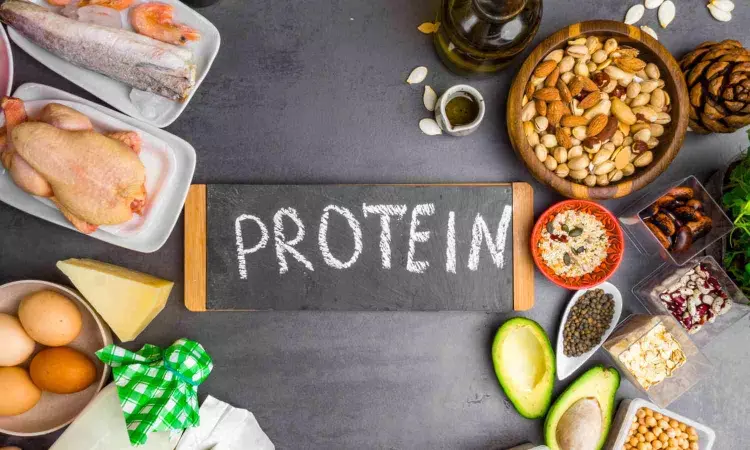- Home
- Medical news & Guidelines
- Anesthesiology
- Cardiology and CTVS
- Critical Care
- Dentistry
- Dermatology
- Diabetes and Endocrinology
- ENT
- Gastroenterology
- Medicine
- Nephrology
- Neurology
- Obstretics-Gynaecology
- Oncology
- Ophthalmology
- Orthopaedics
- Pediatrics-Neonatology
- Psychiatry
- Pulmonology
- Radiology
- Surgery
- Urology
- Laboratory Medicine
- Diet
- Nursing
- Paramedical
- Physiotherapy
- Health news
- Fact Check
- Bone Health Fact Check
- Brain Health Fact Check
- Cancer Related Fact Check
- Child Care Fact Check
- Dental and oral health fact check
- Diabetes and metabolic health fact check
- Diet and Nutrition Fact Check
- Eye and ENT Care Fact Check
- Fitness fact check
- Gut health fact check
- Heart health fact check
- Kidney health fact check
- Medical education fact check
- Men's health fact check
- Respiratory fact check
- Skin and hair care fact check
- Vaccine and Immunization fact check
- Women's health fact check
- AYUSH
- State News
- Andaman and Nicobar Islands
- Andhra Pradesh
- Arunachal Pradesh
- Assam
- Bihar
- Chandigarh
- Chattisgarh
- Dadra and Nagar Haveli
- Daman and Diu
- Delhi
- Goa
- Gujarat
- Haryana
- Himachal Pradesh
- Jammu & Kashmir
- Jharkhand
- Karnataka
- Kerala
- Ladakh
- Lakshadweep
- Madhya Pradesh
- Maharashtra
- Manipur
- Meghalaya
- Mizoram
- Nagaland
- Odisha
- Puducherry
- Punjab
- Rajasthan
- Sikkim
- Tamil Nadu
- Telangana
- Tripura
- Uttar Pradesh
- Uttrakhand
- West Bengal
- Medical Education
- Industry
Higher Protein Intake After Kidney Transplant Improves Graft Function and Metabolism: Study

Researchers have found in a new research that in the early post-transplant phase, greater daily protein intake was associated with better kidney graft function, enhanced lipid metabolism, and higher hemoglobin levels. It was further found that Increased protein consumption independently helped protect graft function following kidney transplantation. The study was published in BMC Nephrology by Bin-QI Yang and fellow researchers.
Nutritional care after the transplant is important in recovery because the administration of immunosuppressants and glucocorticoids can modify metabolism and worsen malnutrition. Proper protein intake is necessary for healing of the surgical wound, repair of tissue, and the stabilization of graft function.
This retrospective observational study enrolled 176 recipients of kidney transplantation who were transplanted at West China Hospital from December 2021 to June 2022. Researchers collected 24-h urine urea nitrogen at 1 and 3 months post-transplant to compute DPI.
According to the KDOQI Clinical Practice Guideline for Nutrition in CKD, patients were classified into two groups:
• High Protein Intake Group (≥1.4 g/kg·day, n = 66)
• Low Protein Intake Group (<1.4 g/kg·day, n = 110)
Laboratory parameters and post-transplant complications were recorded during the initial three months. The relationship between protein intake, graft recovery, and renal function was examined with linear regression and multiple regression analyses to adjust for potential confounders.
Results
• The research found that estimated glomerular filtration rate (eGFR) after three months of post-transplant was found to be much higher in patients who had a higher protein intake.
• In particular, the High Protein Intake Group registered an average eGFR of 67.32 mL/min/1.73 m² compared to 58.88 mL/min/1.73 m² for the Low Protein Intake Group (p = 0.044).
• More detailed analysis with the multiple regression models also supported the fact that increased protein consumption in the immediate post-transplant period was an important independent protective variable for graft function (p = 0.014).
• Better protein consumption is also associated with improved lipid metabolism and increased hemoglobin levels, reflecting better overall nutritional recovery.
• These results indicate that keeping a good intake of protein throughout the first few months following transplantation works towards supporting metabolic stability and renal graft well-being.
In this large observational trial, increased daily protein consumption in the early post-transplant period was independently related to improved kidney graft function, lipid metabolism, and hemoglobin levels. These findings favor the implementation of tailored, high-protein nutritional regimens at the time of kidney transplantation with the aim of facilitating graft protection and recovery outcomes.
Reference:
Dr Riya Dave has completed dentistry from Gujarat University in 2022. She is a dentist and accomplished medical and scientific writer known for her commitment to bridging the gap between clinical expertise and accessible healthcare information. She has been actively involved in writing blogs related to health and wellness.
Dr Kamal Kant Kohli-MBBS, DTCD- a chest specialist with more than 30 years of practice and a flair for writing clinical articles, Dr Kamal Kant Kohli joined Medical Dialogues as a Chief Editor of Medical News. Besides writing articles, as an editor, he proofreads and verifies all the medical content published on Medical Dialogues including those coming from journals, studies,medical conferences,guidelines etc. Email: drkohli@medicaldialogues.in. Contact no. 011-43720751


